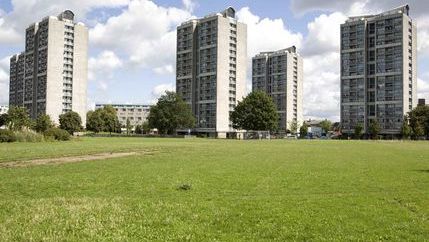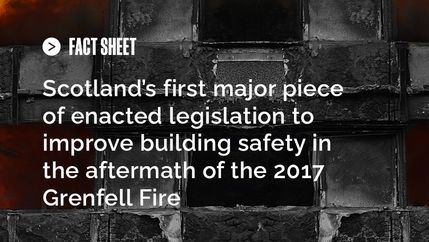
Following the Grenfell Tower fire in 2017, each UK nation is developing a system of replacing flammable cladding in high-rise buildings. In June 2024, the Housing (Cladding Remediation) (Scotland) Act 2024 received Royal Assent, which gave Scottish Ministers the power to arrange for assessments of buildings over 11 metres that were suspected to contain flammable cladding and arrange for works to replace them. Proposals are now being considered for how this will be funded.
Charges must not burden blameless parties
Propertymark supports any action to make those responsible for installing or purchasing unsafe cladding take responsibility to pay for its replacement. We are also pleased that the Scottish Government is still considering a range of options to fund the programme.
It is critical that residents and owners of individual residential units within these buildings should not pay for remediation unless they were directly responsible for the unsafe cladding being installed in the first place.
Universal tax will suppress investment
The proposed levy in Scotland is a self-assessed tax that would be paid by all developers of new residential homes, with some exemptions for smaller developers and affordable homes.
We strongly caution that any sector-wide tax puts the delivery of much-needed new homes at risk and would allow the developers responsible for the problems to avoid contributing to the solution.
Incentivise prompt action
Propertymark recommends that the Levy be reduced or stopped once all cladding has been remediated. This would incentivise those who decided to install unsafe cladding to replace it quickly, which would also reduce the overall cost of the Scottish Government’s cladding remediation programme.
Support for members
Our Housing (Cladding Remediation) (Scotland) Act 2024 factsheet gives membners an overview of the legislation and what it means for managing and letting agents.
Fact sheet: Housing (Cladding Remediation) (Scotland) Act 2024
A ministerial working group, established in 2020, sought to review the existing issues with cladding and found that the process for remediation was overly complex and was preventing the sale of homes. The Act is designed to help facilitate more buildings to have their cladding remediated to higher standards, so they are less likely to lead to further loss of life in the event of a fire.









